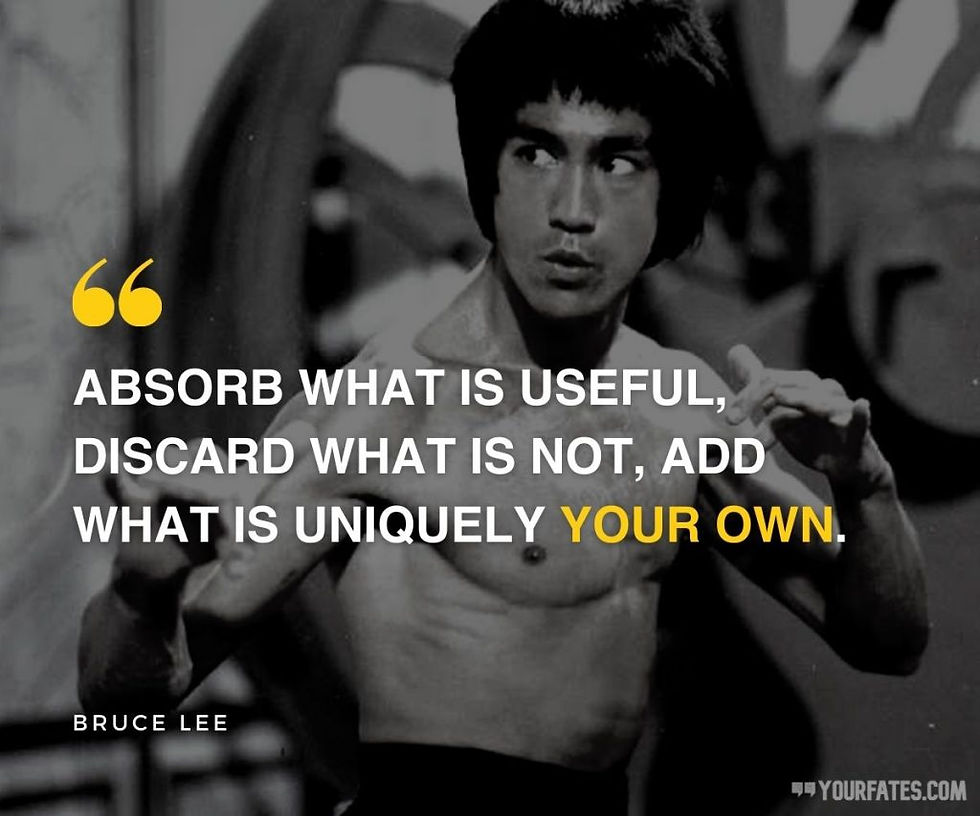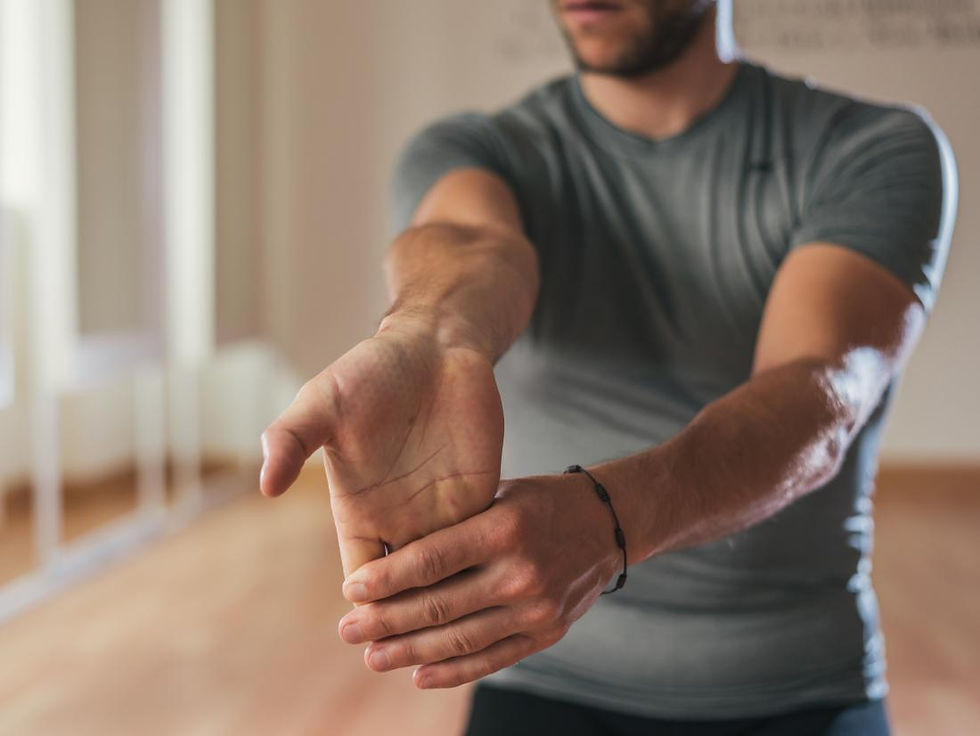Guitar Practice: Top 5 Things To Do In Your Practice Routine
- Nick Weiland
- Mar 27, 2023
- 6 min read
Updated: Jul 12, 2024
Top 5 Things We Should Put Into Our Practice Routines
Prologue
If you are just starting out then practicing is crucial in your early stages of development and having a routine can be a very important step to take to make sure that your experience on guitar is a more linear progression.
Whereas if you are more experienced a practice routine can be helpful but it will be more than likely that you will be already busy musically therefore only needing a routine to maintain the current level of ability to aid your performance.
Knowing Your Goals
"Absorb what is useful, discard what is not, add what is uniquely your own"
It is good to know what your goals are before planning any practice routine because it is always better to practice smarter than practice harder.
Practicing can be detrimental if it isnt geared towards a goal orientated acheivement. It could well be that you are practicing something that isn’t helpful to your progression. Working smarter means finding out what works and discarding what doesn’t.
Bruce lee said "absorb what is useful, discard what is not, add what is uniquely your own" this was his mantra for his martial art Jeet kune do and here we are going to apply the same mantra to our practice routines.

Another thing to mention is that if you are practicing for a gig or for a performance that is happening soon, your practice routine could drastically change your goals.
Having different reasons to practice can influence how you structure your practice routine.
This is why I will be giving general guide lines that will be applicable in different situations.
Let’s start with the things that we all should be doing in our practice routines.
Always Practice Something New
This enables you to be a much more versatile player as it makes picking up new materials a breeze.
It may feel at first that you are not making as much progress with this approach.
The usual habits that most guitarists adopt with practice, is to take a concept/idea or excersize, over practice that one thing and make that become their comfort zone.
Which can be very limiting.
Sure, it gets you good at that one technique or idea that you are practicing, but taking this approach actually excludes 99% of other areas of guitar playing that you may need to cover.
What tends to happen when you adopt the idea of practicing something new everytime is that it takes some time to get used to. Always picking up a new phrase, a chord progression or part of a solo may feel not quite 100% whilst using this method which is a totally valid experience to have. What you will find is that over time this method allows for you to be adaptive to most situations when you start learning new pieces of music rather than hyper focused on that one idea.
So what I suggest is picking up something that you haven’t played before and always wanted to, giving it a good try. then moving onto something else that’s new each time. It feels weird at first but after a while you get used to it and generally things become easier to learn with this approach.
Subscribe Now to Grokit Guitar Blog
Join the Grokit Guitar community for exclusive guitar content delivered straight to your inbox! Subscribe now to stay in tune with the latest tips, tutorials, guitar lessons, and insights from seasoned guitarists.
Pick Something To Learn That Is Not Too Challenging
Often as guitarists we tend to have the habit of picking the hardest thing we can think of and trying that to varying degrees of failure or success. (Speaking from experience).
I’m here to tell you the good news is that you don’t have to do this!
The idea of this part of practicing is to pick something that isn’t overtly challenging. What i mean by overtly challenging is when the guitar playing is too hard or not possible at your current skill level. Its good to have an awareness of this so you can try to attempt music that is challenging and within your reach. You should be picking something that is just difficult enough that it pushes you from where you currently are to the next step of your guitar playing. I’ve seen other guitarists get obsessed with practicing the same thing over and over again whilst not getting any further on a really complicated piece, when they could have spent those months playing things that were within their reach and in their skill set vastly improving their vocabulary. This attitude is far more productive and far more forgiving on your own development as a guitarist.
Practicing Consistently Every Day
Its more important to set aside a time in the day everyday than it is to leave your practice and think “I will catch up on the weekend and practice for 3 hours to make up for the lost time I should have done during the week”.
This doesn’t work because our body and muscles do not like this one bit!
Every time you take this approach your body is having to play catch up to the last time you did “binge practicing”. Which makes it very difficult to have any results as your muscles get stiff during the week then get violently stimulated for 3 hours.
Its much healthier to spend just 20 minutes per day at the same time to form a habit. When you attempt to play pieces of music, your muscles are limber and relaxed rather than stiff and stressed.
The Importance Of Warmups And Stretches
Before doing any “routine” for guitar practice, it is important to factor into any routine warmups and stretches. In my opinion you should take it just as seriously as prepping to use the gym before a workout or just before you go for your run to keep yourself healthy.
Stretches and warmups should be the staple thing to do before starting any routine. When I talk about stretches, I’m talking about stretching your hands your forearms, your shoulder blades and any part of your body that is being used either whilst standing up or sitting down to play the guitar.
see the photo examples for a guide for stretches:


**Disclaimer for anything physical related please always consult a doctor first**
These stretches keep the body supple and prepared to play your instrument. In your routine there also should be an element of a warmup.
What is a warmup?
Well the clue is in the name, its an exercise that warms up your muscles to get ready for your routine that you have scheduled yourself. I want to make this clear *YOUR WARMUP ISNT A PRACTICE ROUTINE*.
With a warmup you should be doing it only to the point where your fingers feel supple and warm, ready for the next task.
Work Towards An Attainable Goal
I know I maybe repeating myself slightly or there is a bit of overlap between this topic and one of the previous topics but I truly do believe it needs to be mentioned in the list. Its probably the most important part of a practice routine.
To make your practices goal orientated.
What I mean by making your practices goal orientated is to plan ahead what you want to achieve and then reverse engineer how you are going to achieve that goal.
Doing due dilligence of how to reverse engineering could give you a reasonable timeline as to when that goal will be achieved.
Which brings onto the next point. Setting a deadline.
Setting a deadline is vital to keep things moving forward. if you do not have a deadline for when you want to achieve a goal, that goal could go on forever and never be achieved.
One thing to mention about setting a deadline is to be reasonable, by that I mean to set a deadline you know wont be too demanding of you but also attainable.
You don’t want to be setting deadlines that require too much of you as that can lead to burnout and lack of enjoyment.
And Remember.....
Always be kind to yourself.
If you have enjoyed this article be sure to check out the companion article Practice Routines: Top 5 things NOT to do. Link below article written by:
GuitarGuyNick




Brilliant! Loving Mr Weiland’ hot takes